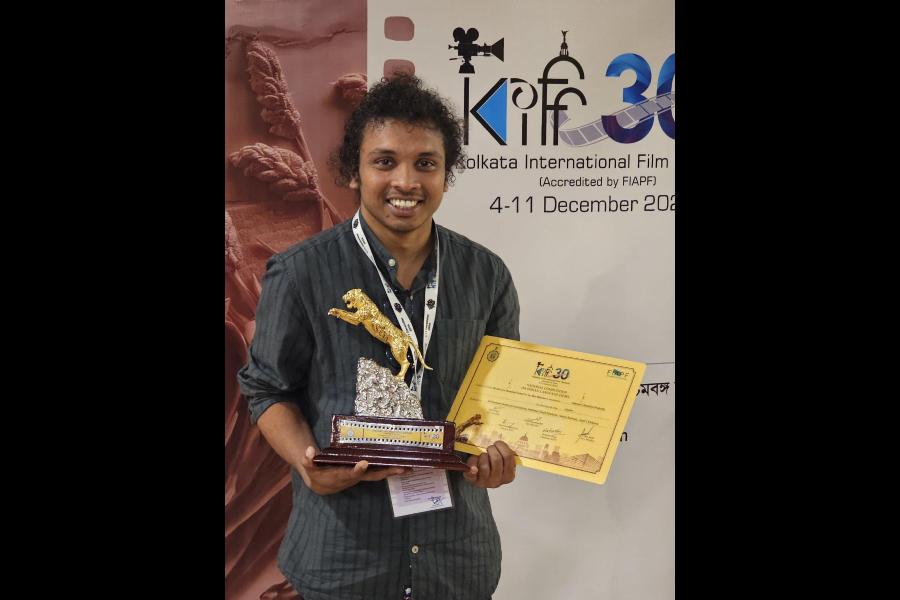The film was crowdfunded. The cast and crew comprised villagers whose only idea of cinema was dancing and fighting. The sole technician on location, the cinematographer, was bent on leaving that day. Yet there was no sign of rain to shoot the remaining scenes in.
“I begged him as I knew his departure would mean another delay till I could raise funds to hire a camera again. He was set to leave when it started raining. And it rained till evening so we could walk or cycle from location to location, along with an ox, and complete all the rain scenes before the cinematographer left. That is why I call myself a student of nature. Nature has taught me how to make films and holds my hand at every step,” Aaryan Chandra Prakash told Metro, clutching his Best Director’s trophy named after the filmmaking pioneer Hiralal Sen in the Competition in Indian Language Films.
The 26-year-old farmer’s son was awarded the prize at the closing ceremony of Kolkata International Film Festival on Wednesday for his debut film Aajoor, which is also the first film in his mother tongue — Bajjika. “It is spoken in north Bihar and Nepal,” he said.
If he got emotional on stage, it is because he remembered all the hurdles he had to face. “Hard words give you the urge to dream,” he smiled. A dream made Aaryan quit his job in Delhi and return to his village to make the feature film. “Bihar is known for migration. I wanted to change the trend by returning. The story is about our own community — how a girl is discouraged to study and the focus is on the boy. Instances abound — a boy gets a bicycle to reach school; if a girl wants to study she has to walk 7-8km daily. I just had to put a camera in their midst,” he said.
Aaryan reached out to the entire village for help, including his grandfather, mother and sister who have acted, fighting a wave of scepticism. The villagers even rose over deep-seated caste-based prejudices, with a so-called lower caste actor rubbing shoulders with rest of the cast. “My biggest challenge was to ensure they do not act. It took them two years to get used to the camera,” he recalled.
Fifteen of them had made their maiden trip to a big city, Calcutta in this case. “They had wept on seeing themselves on screen. Wish they could be here.”
The only ray of light in the village is an NGO, Shrirampur Samvad Foundation, which runs a skill development centre and has also co-produced the film. Aaryan is one of the mentors there. “We are teaching boys how to cook so girls can come out of the kitchen,” said the young filmmaker who hails from Sitamarhi, “the birthplace of Sita Ma”, who had to fight her own battles for emancipation in The Ramayana.











